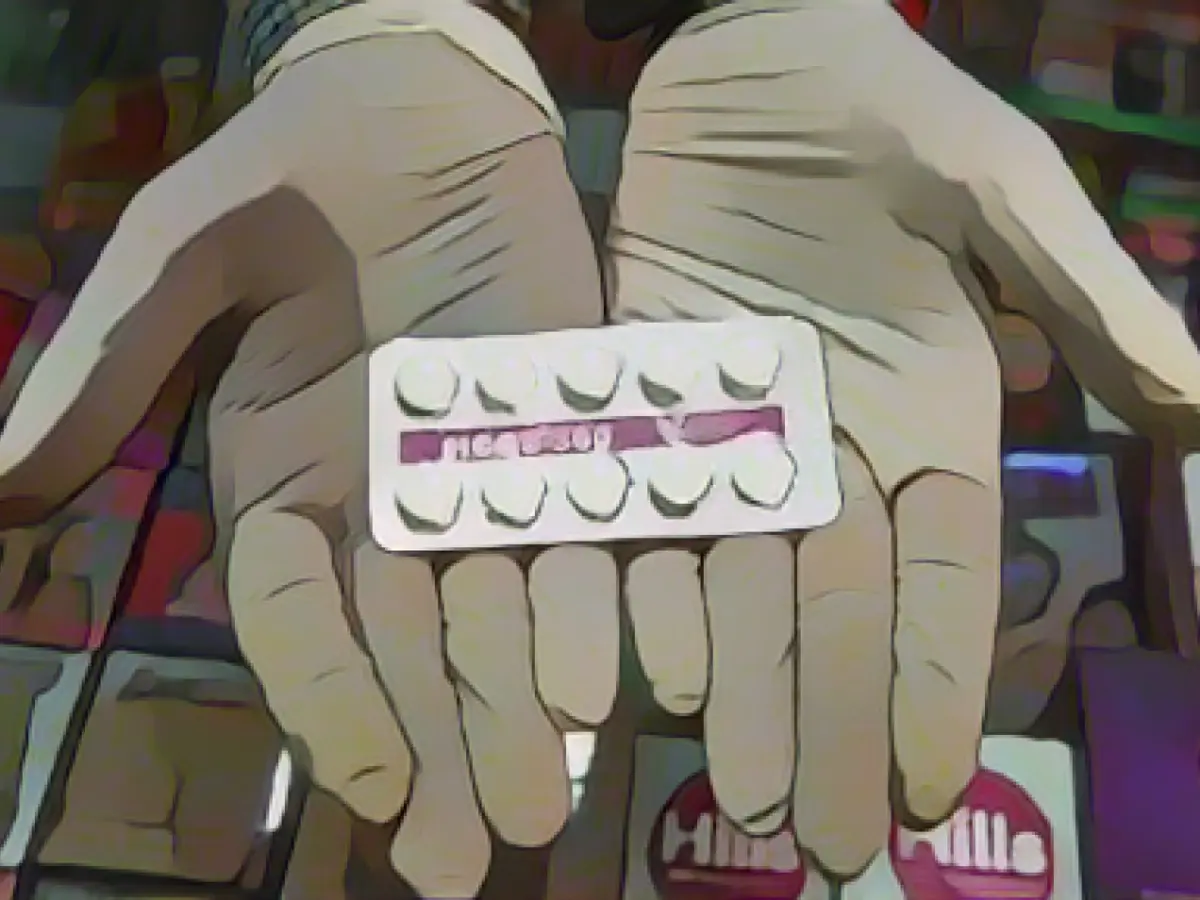Germany Wants to Revitalize Pharma Production to Bolster Domestic Medication Supply
The German government has introduced a plan to stimulate local pharmaceutical production, aiming to tackle the growing trend of moving drug manufacturing to cheaper overseas locations. This strategy comes in response to recurring medicine scarcities in the country, caused by supply chain problems and other uncertainties.
The new initiative focuses on developing new funding mechanisms to support domestic production, with priority given to rare disease treatments and antibiotics. A fresh Federal Ethics Commission will be set up at the Federal Institute for Drugs to expedite vital research approvals. Additionally, the government will work on faster sharing of medical research results with the pharmaceutical industry.
Federal Minister of Economics Robert Habeck (Greens) commented that the goal is to revitalize Germany as a prominent location for the research, development, and production of pharmaceuticals. The effort aims to strengthen the country's medical and health self-sufficiency.
Furthermore, Federal Research Minister Bettina Stark-Watzinger (FDP) highlighted the need for creating innovative-friendly industrial conditions and minimizing bureaucratic obstacles. She pointed out that doing so is crucial for Germany to remain a competitive pharmaceutical powerhouse in the long term.
The recently released strategy document indicates that Germany has seen a decrease in its international appeal as a research and development hub in recent years, leading to an exodus of pharmaceutical production for several active ingredients. Presently, 60% of approved drug active ingredients are produced in Asia, significantly up from the 30% figure from two decades ago. This trend highlights the potential for strategic dependencies and increased risks of disruptions in supply chains and consequent medicine shortages.
Related Articles:
- Prominent SPD politician Karl Lauterbach supports the German government's goal of fostering domestic pharmaceutical production, aiming to counteract the shift of production to more affordable overseas locations like China and India.
- Concerns about China's increased role in digitizing the pharmaceutical industry have been raised in Germany, with the aim of preserving the country's leading position in this sector.
- The German Pharmaceutical Industry Association (BPI) has raised concerns about the proposed strategy, fearing it could generate further uncertainty in an already challenging business environment.
- The SPD and Green Party have urged the German Federal Cabinet to take decisive action to prevent additional pharmaceutical production from moving abroad, securing the sovereignty of the country's healthcare system.
- The BMG, the German Federal Ministry of Health, has announced it will initiate a consultation process with key industry players to obtain feedback on the strategy and make adjustments if necessary.
- The action plan also emphasizes the development of generics and biosimilars in Germany, which could help reduce costs for consumers and boost access to essential medicines.
- The Federation of German Industries (BDI) has welcomed the government's proposed strategy, suggesting it could contribute to creating more jobs and solidifying Germany's position as a global pharmaceutical leader.
- India has expressed apprehensions over the proposed strategy, worrying about its possible impact on fragile supply chains and the potential for price increases for patients in both countries.
- The new German Government's pharmaceutical manufacturing strategy is expected to be finalized in Berlin in the near future, focusing on making the country an appealing destination for investment in the pharmaceutical industry.
Source:
Strategies to Enhance Domestic Pharmaceutical Production:
- Promote Local Production Incentives: Implement lucrative tax breaks or subsidies to encourage companies to invest in local manufacturing facilities.
- ** Streamline Regulations**: Simplify regulatory processes to minimize the time and cost of setting up local manufacturing plants.
- Enhance Supply Chain Security: Establish early warning systems to identify potential critical medicine shortages before they become widespread, enabling proactive steps to address supply chain challenges.
- Promote Market Competition: Encourage multiple suppliers for critical drugs to maintain affordability and supply security.
- Invest in Research and Development: Provide government funding to boost local research and development initiatives, promoting a domestic repository of innovative pharmaceutical products.
- Upgrade Infrastructure: Upgrade and expand manufacturing facilities to raise their capacity and improve productivity.
- Support Biosimilars and Generics: Encourage biosimilars and generic drug development to reduce reliance on originator products and make essential medicines more affordable.
- Reduce Bureaucracy: Minimize bureaucratic hurdles to make navigating the regulatory landscape easier and more attractive for companies considering local production.
By embracing these strategies, the German government can make local pharmaceutical production more attractive, reducing dependencies on global markets for essential medications and bolstering a more sustainable and secure supply chain.




